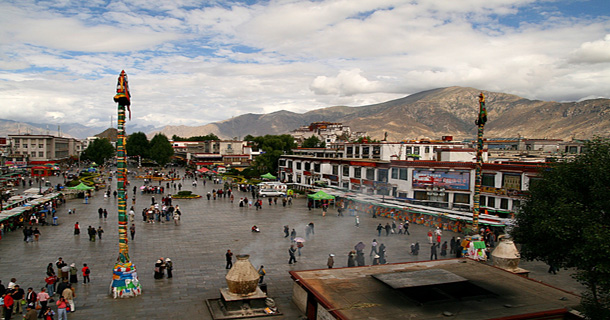Tibetan residents of western Chinese provinces have been blocked from travelling to Tibet’s capital Lhasa for the duration of March, a month of politically sensitive anniversaries, Tibetan sources say.
Restrictions include bans on travel both by rail and by air, a Tibetan living in Australia told RFA’s Tibetan Service, citing contacts in the region. “China is profiling Tibetans and denying them rail tickets from Xining and Lanzhou,” RFA’s source said, referring to the capitals of Qinghai and Gansu provinces respectively. “No plane tickets are being sold to Tibetans travelling from Sichuan’s capital Chengdu to Lhasa until the end of April”.
“They were asked by ticket officials to show their IDs, and after being identified as Tibetans they were told that no tickets would be sold to them.”
Tickets were freely sold to members of other ethnic nationality groups, the source said.
Another source for the story was quoted as saying that Tibetans in Qinghai wishing to travel by rail to Lhasa had been told to wait for a week to purchase their rail tickets. “But then they were told that no tickets would be sold to Tibetans for the rest of the month,” the source said, adding that anyone who had attempted the journey had been forced to return home.
China now regularly blocks travel to Lhasa by Tibetans living in western Chinese provinces each March, a month when Tibetans around the world remember the Lhasa uprising of March 10, 1959. On this day, Tibetans rose up in protest against Beijing’s tightening political and military control of Tibet, sparking a rebellion in which thousands were killed.
For the last eight years, in March Tibetans also remember the 2008 unrest in Lhasa, which sprung from that year’s Uprising Day demonstrations. Events were exacerbated by increased Chinese crackdowns and restrictions. From there the protests escalated with the involvement of many monasteries and lay people and led to a brutal crackdown by Chinese police.
The riot then sparked a wave of mostly peaceful protests against Chinese rule that spread across Tibet and into Tibetan-populated regions of western Chinese provinces.





 Print
Print Email
Email